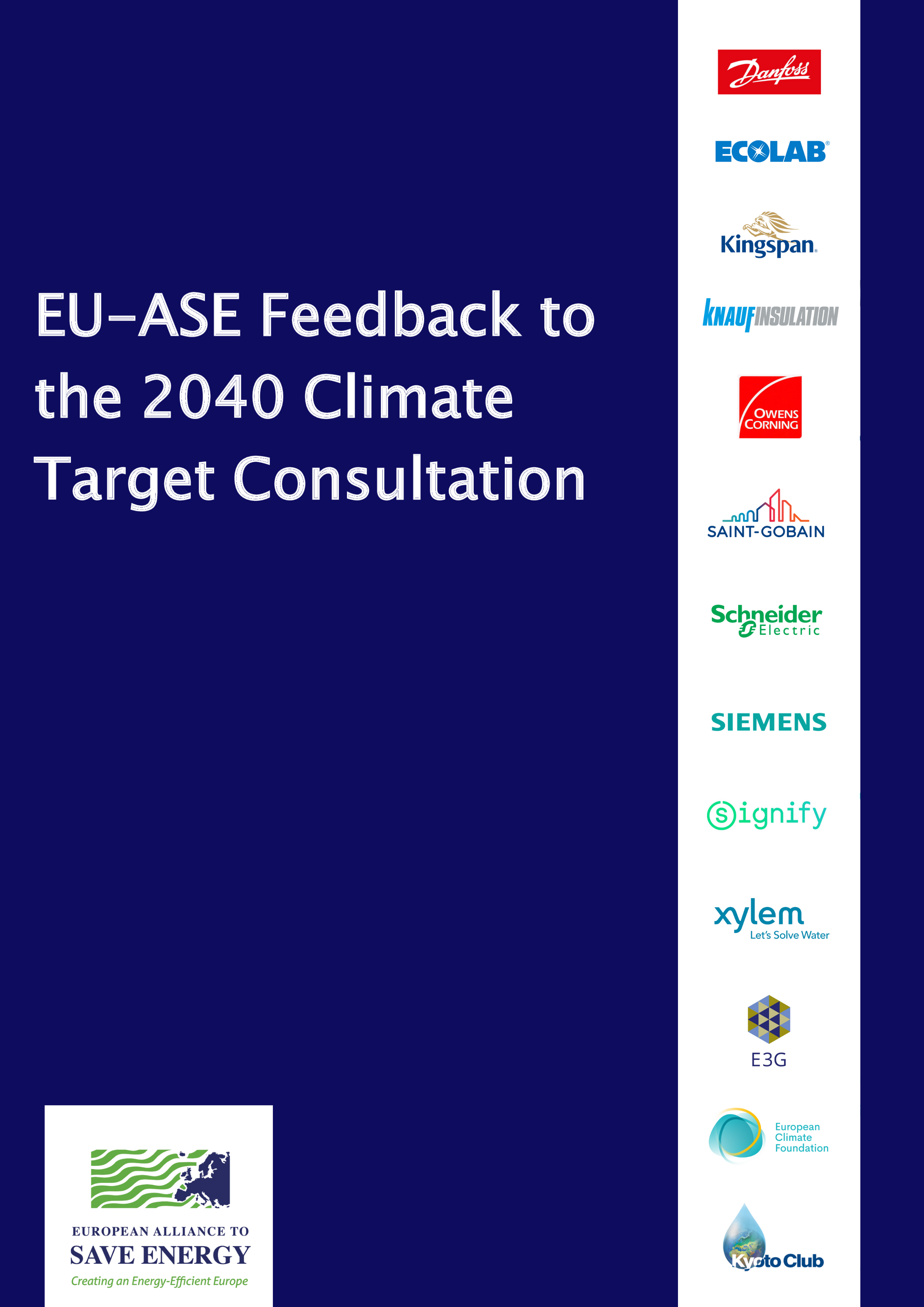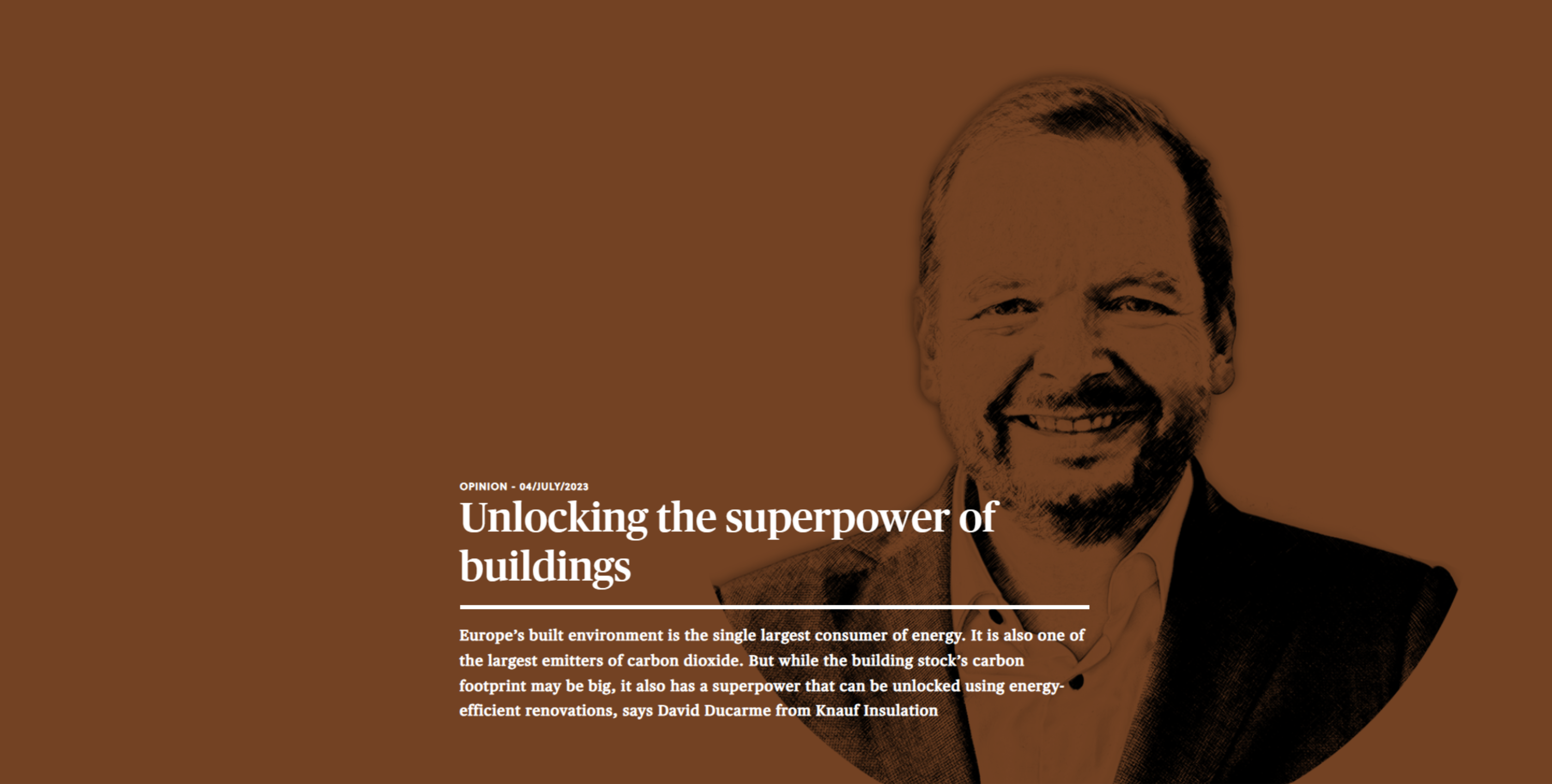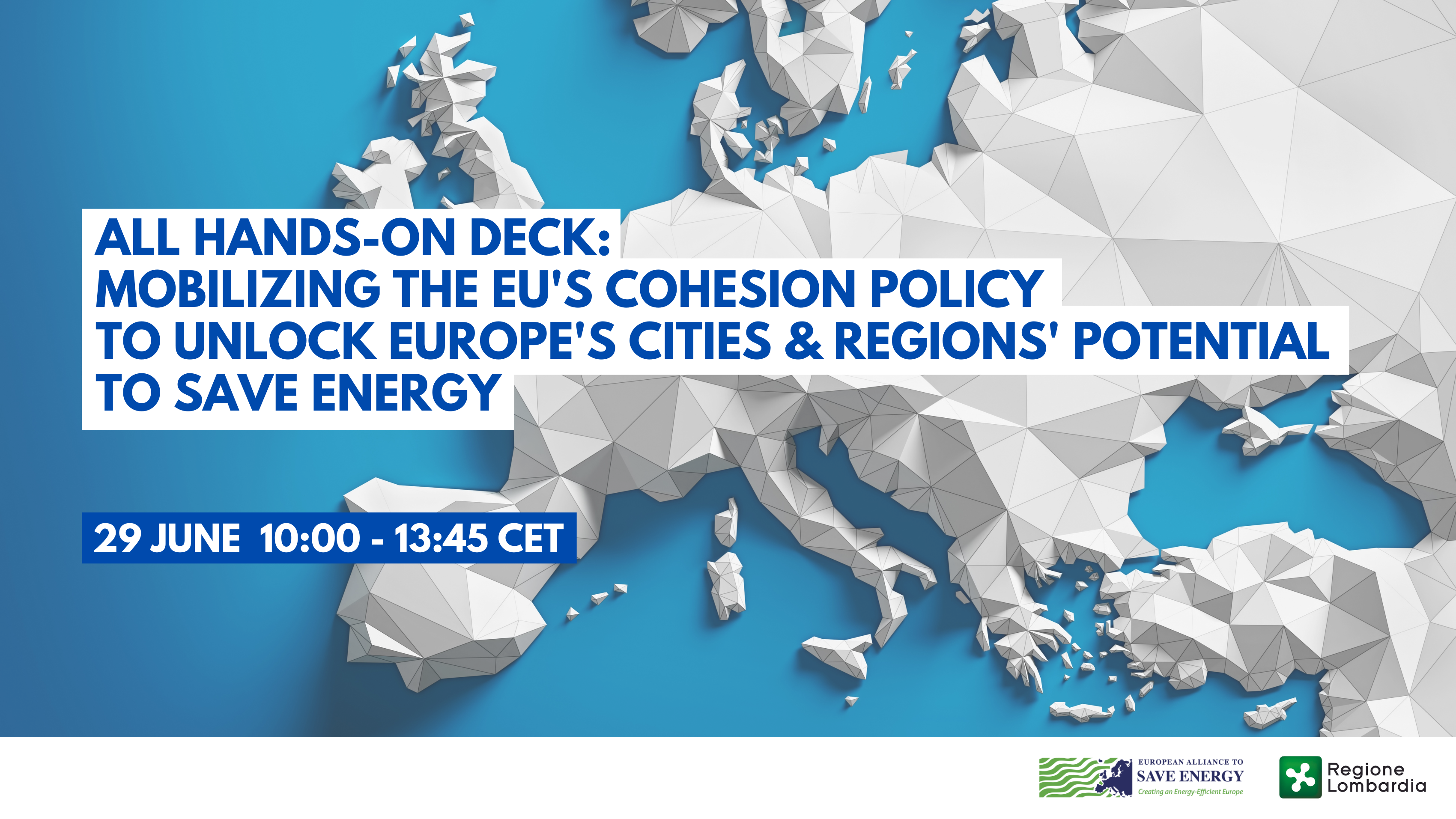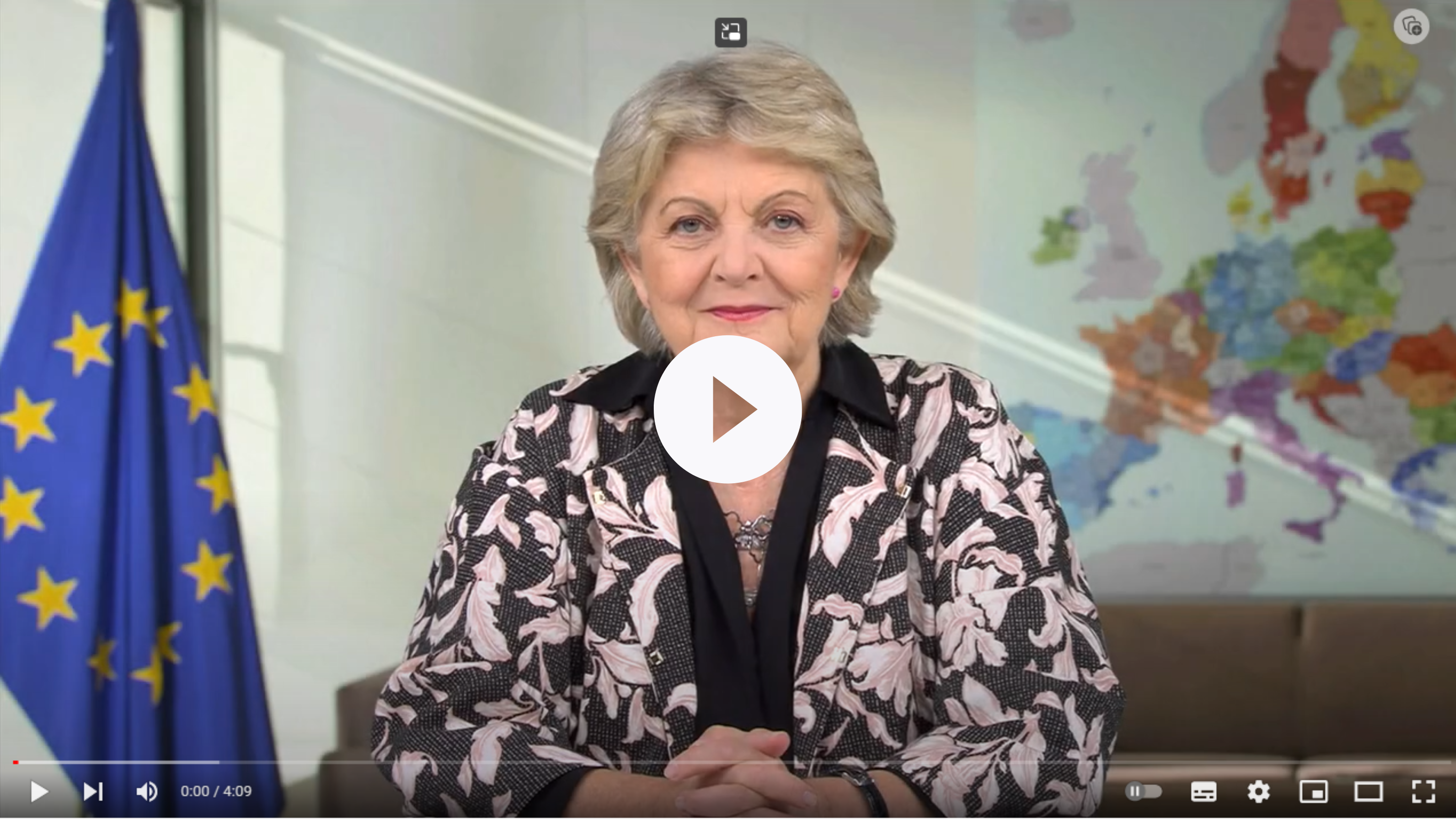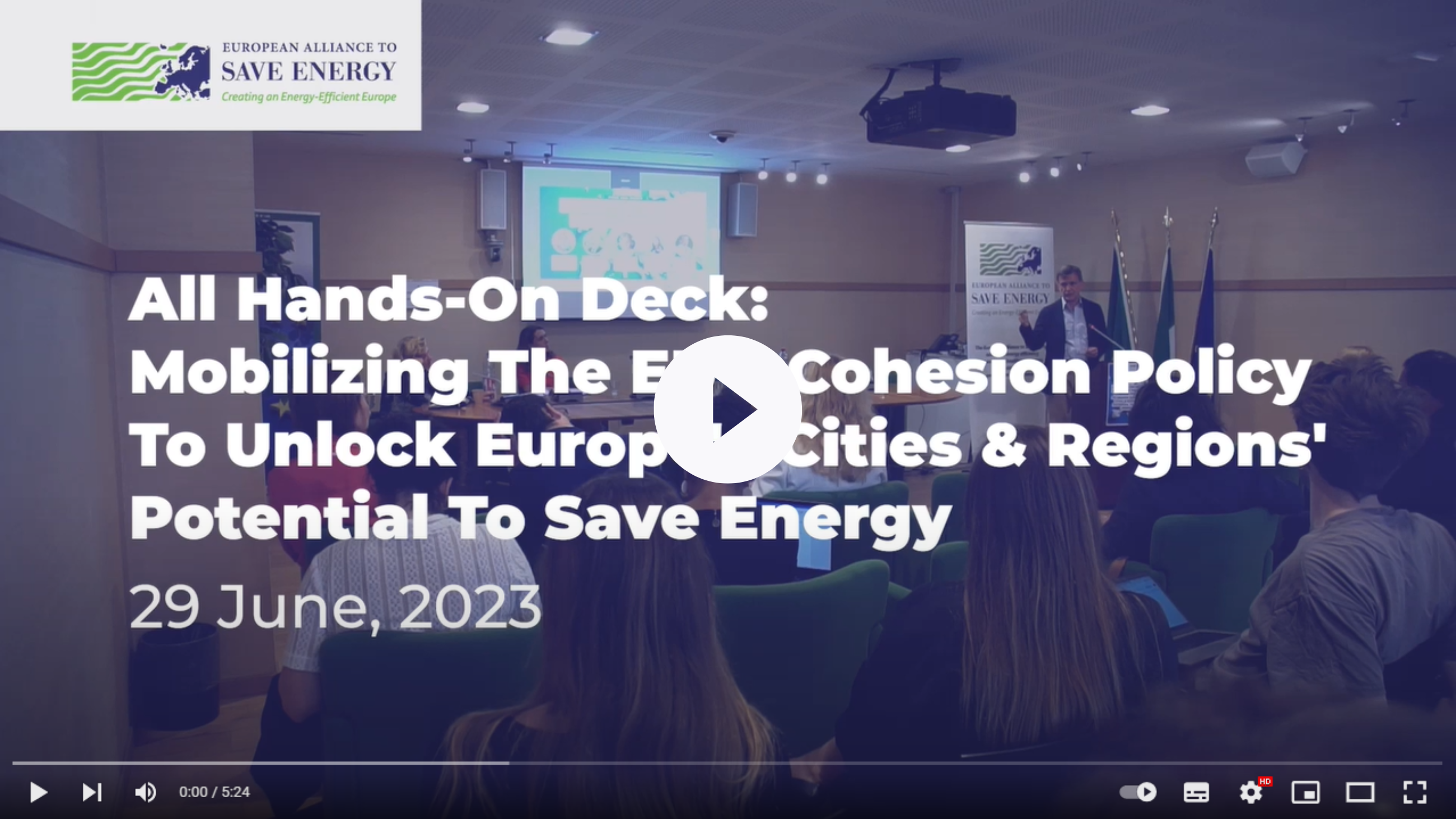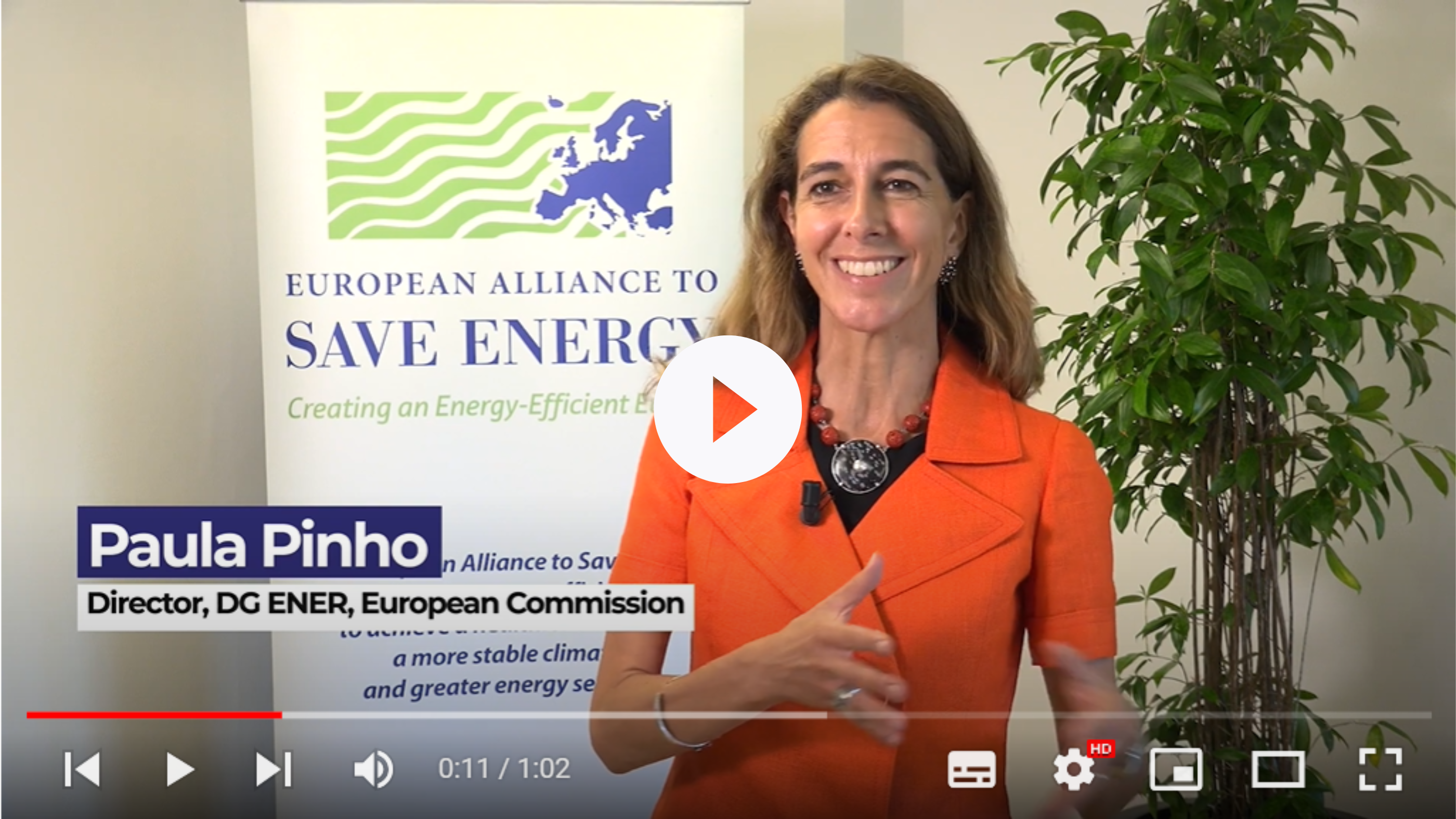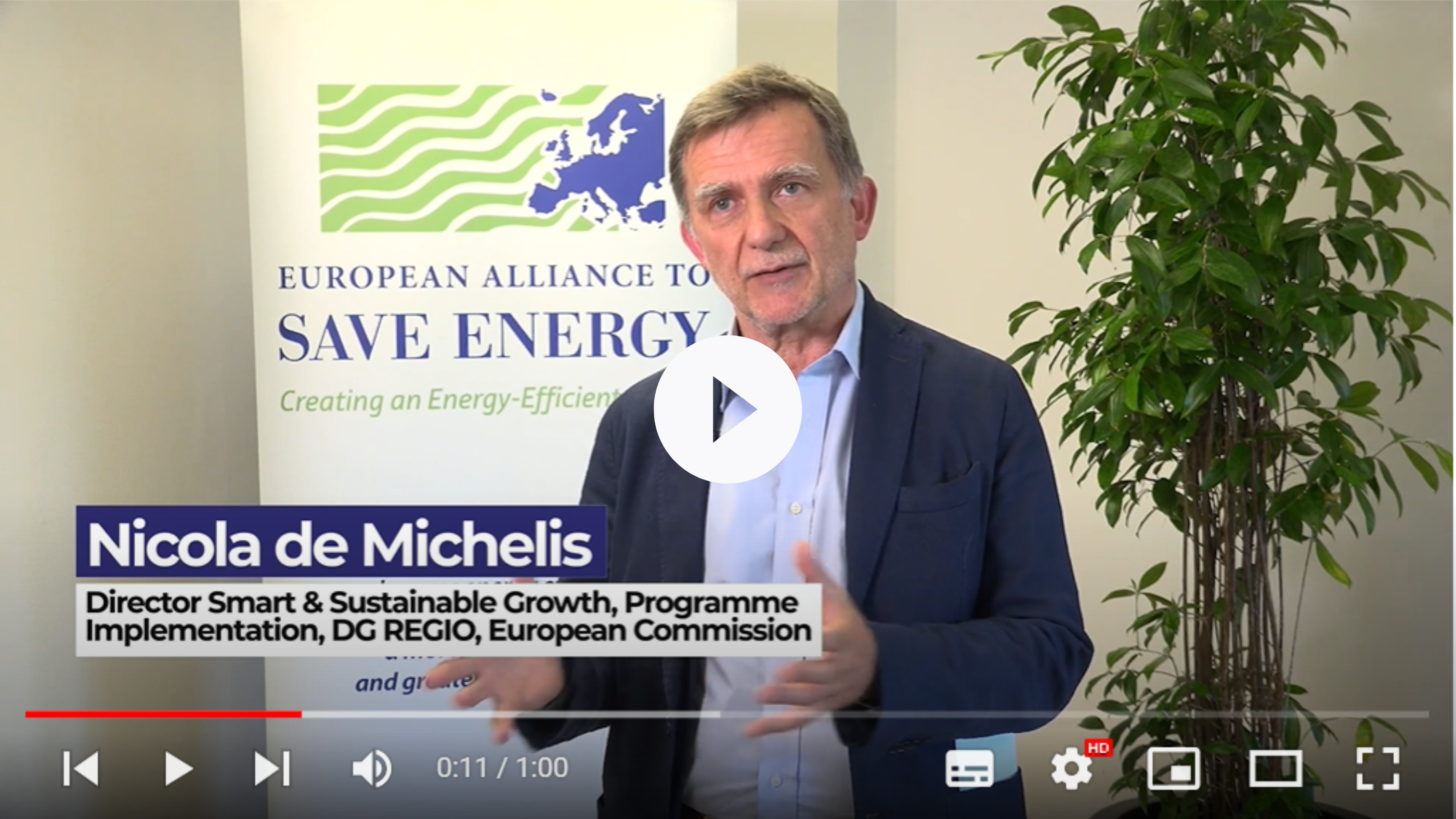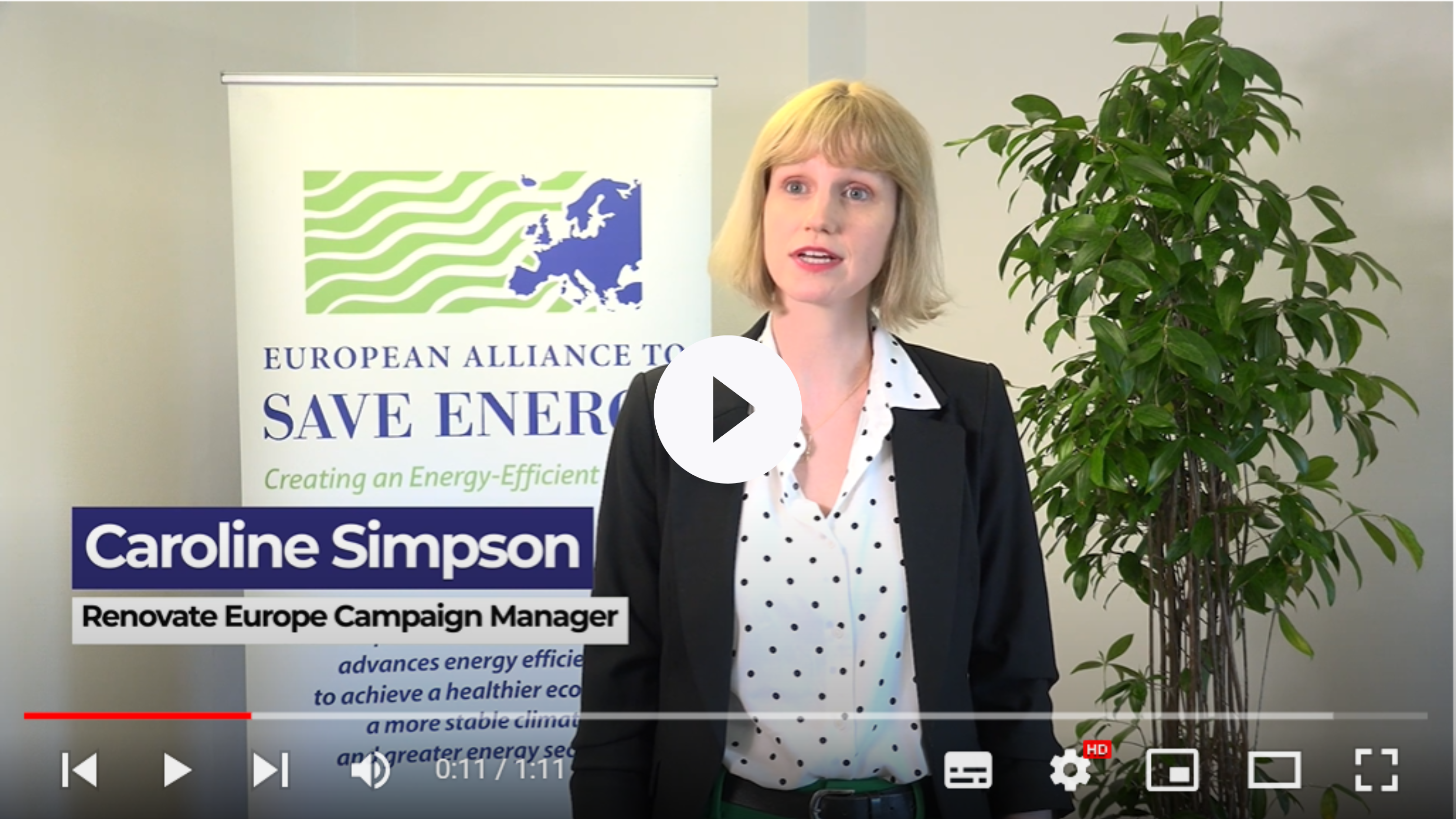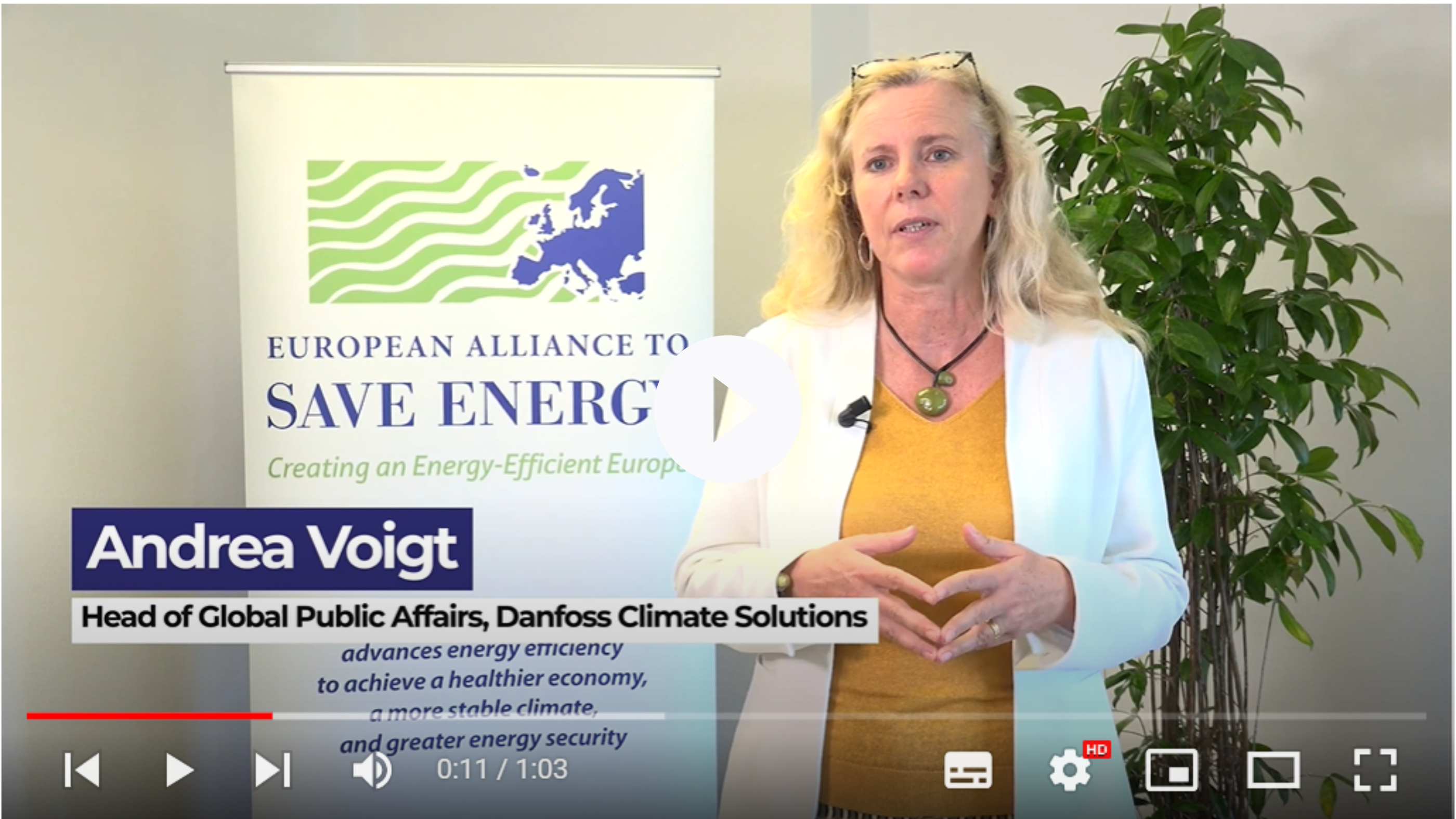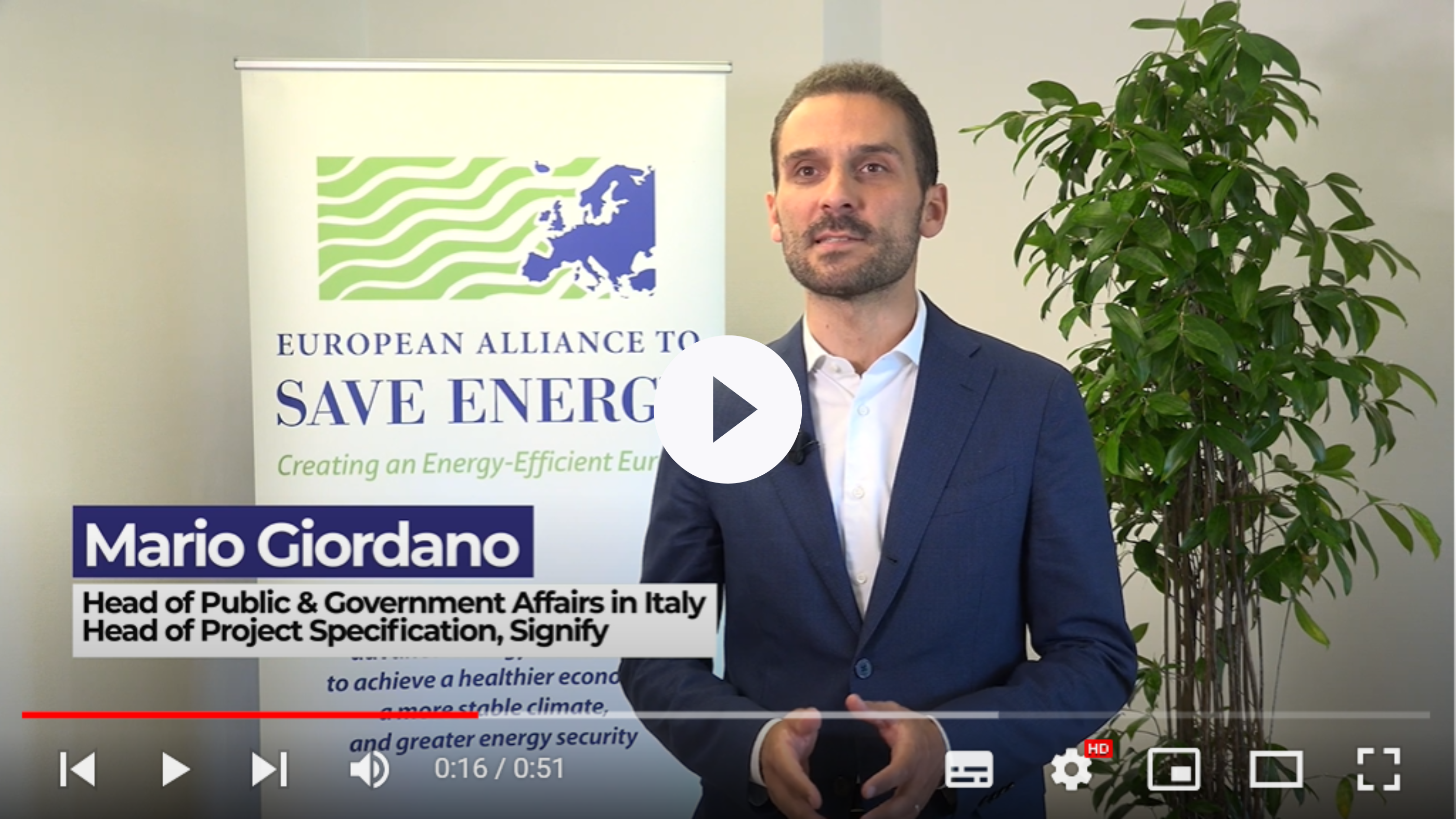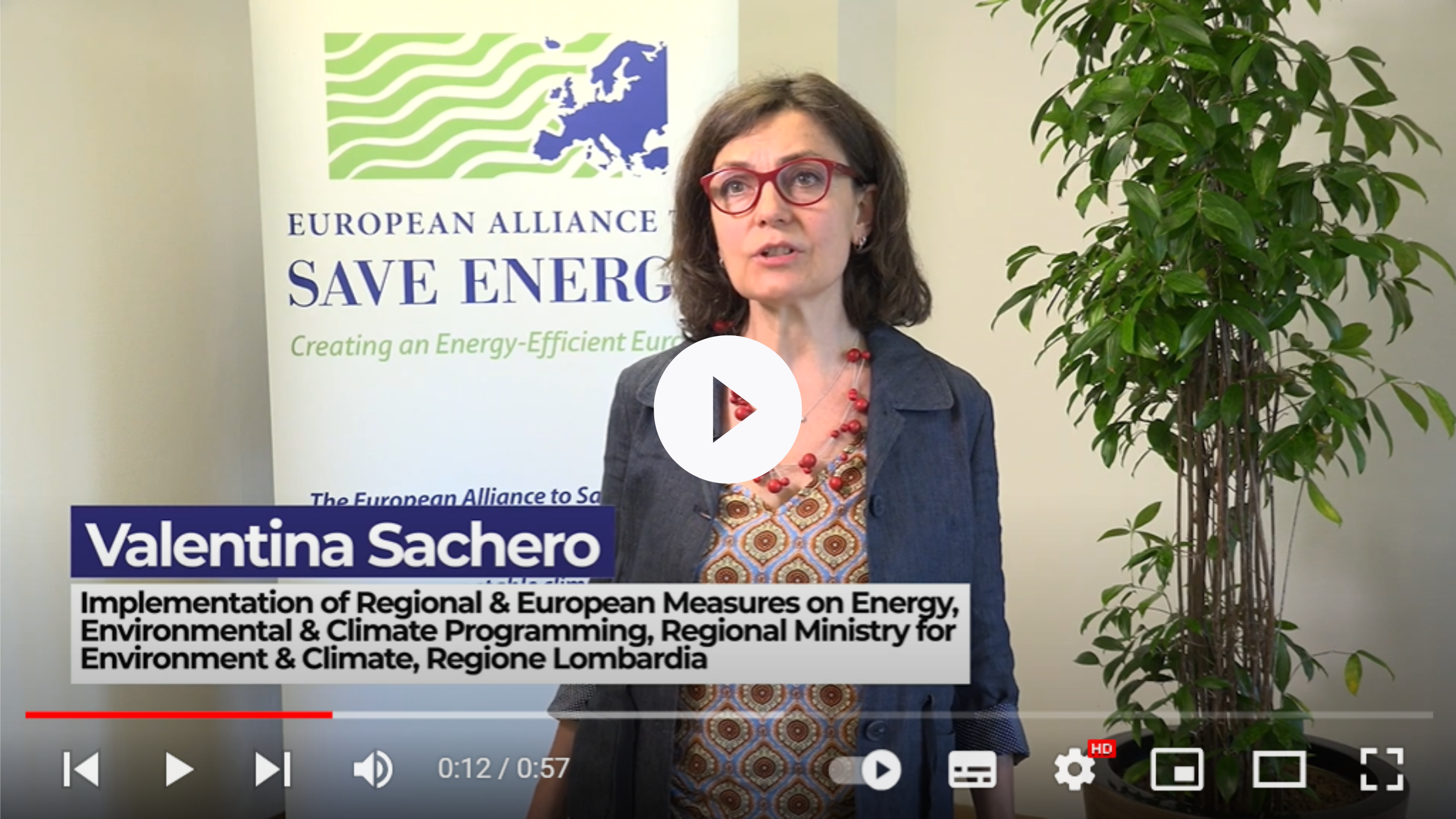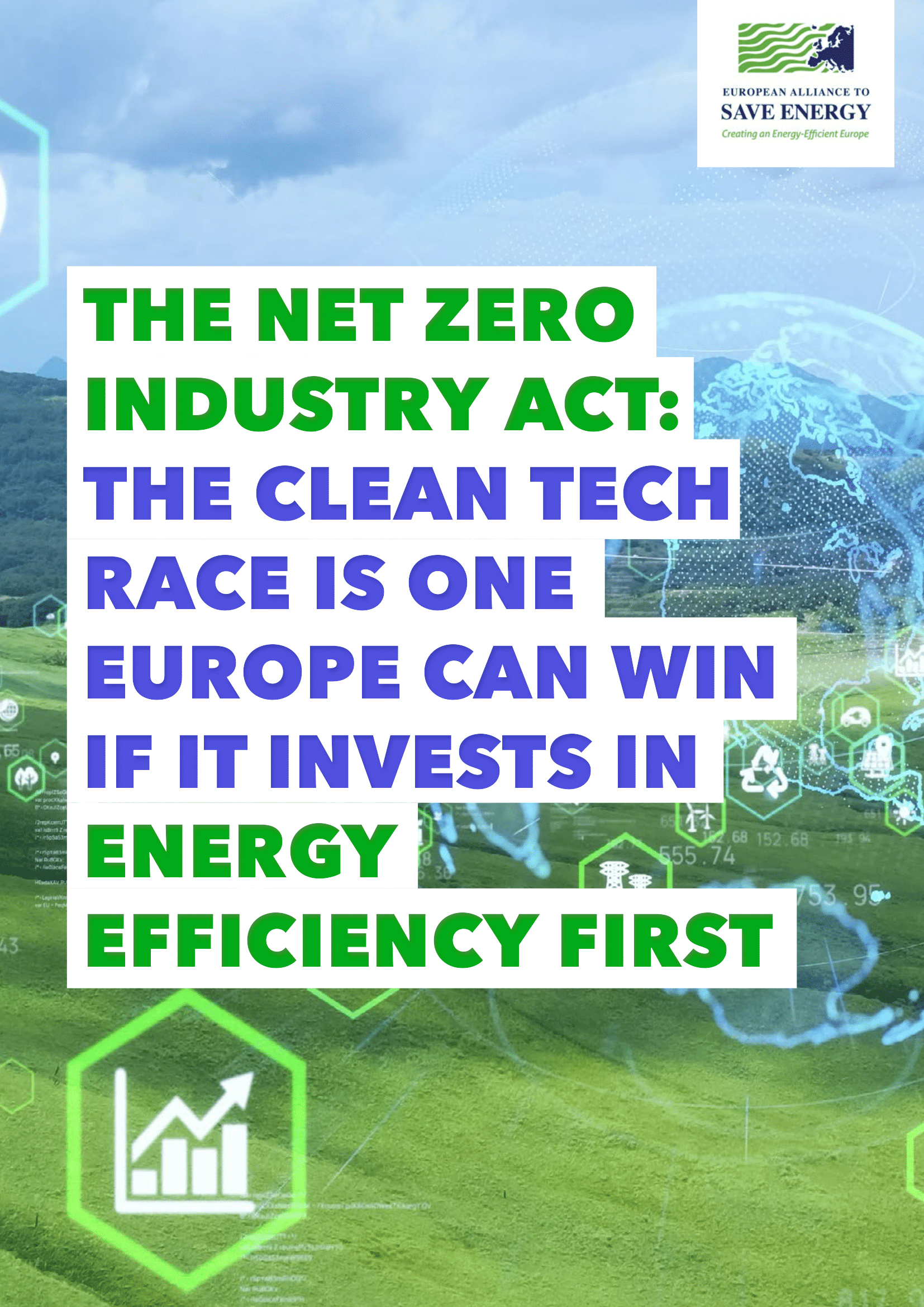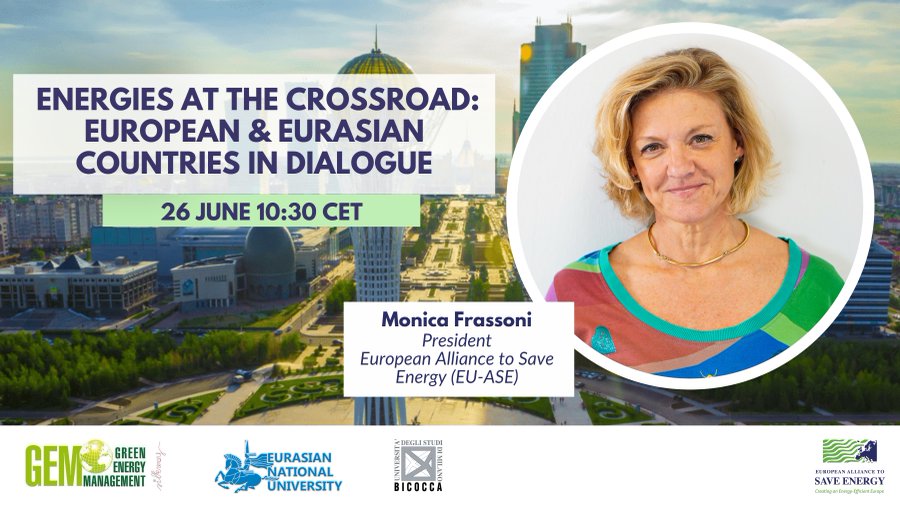The European Alliance to Save Energy (EU-ASE) recognizes the need for a systemic change in Europe’s industrial policy to address the climate and energy challenge while keeping Europe’s economies more competitive. In it’s urgency the Commission has overlooked a sector that is truly crucial for Europe to reach net-zero by 2050: the energy efficiency sector.
On 16 March, the European Commission tabled its Net Zero Industry Act (NZIA), outlining a plan to scale up manufacturing of clean technologies in the EU to make sure the Union is well-equipped for the clean energy transition.
In the words of European Commission President, Ursula von der Leyen: “It will create the best conditions for those sectors that are crucial for us to reach net zero by 2050: technologies like wind turbines, heat pumps, solar panels, renewable hydrogen as well as CO2 storage” (1).
As the representatives of some of Europe’s leading manufacturers of energy efficiency solutions and services, the European Alliance to Save Energy (EU-ASE) fully recognizes the need for a systemic change in Europe’s industrial policy to address the climate and energy challenge while keeping Europe’s economies more competitive.
Our members have a solid and growing manufacturing footprint in Europe – they want and need to be able to rely on a future industrial framework that is accessible, stable and competitive and that drives innovation and new sustainable business models. The Net Zero Industry Act is a necessary and welcome initiative. We also recognize the urgency of the challenge, as well as the need for proposals from the European Commission.
However, in its urgency the Commission has overlooked a sector that is truly crucial for Europe to reach net-zero by 2050: the energy efficiency sector.
Read our full statement here.
Bibliography: (1) Net-Zero Industry Act: Making the EU the home of clean technologies manufacturing and green jobs: https://ec.europa.eu/commission/
